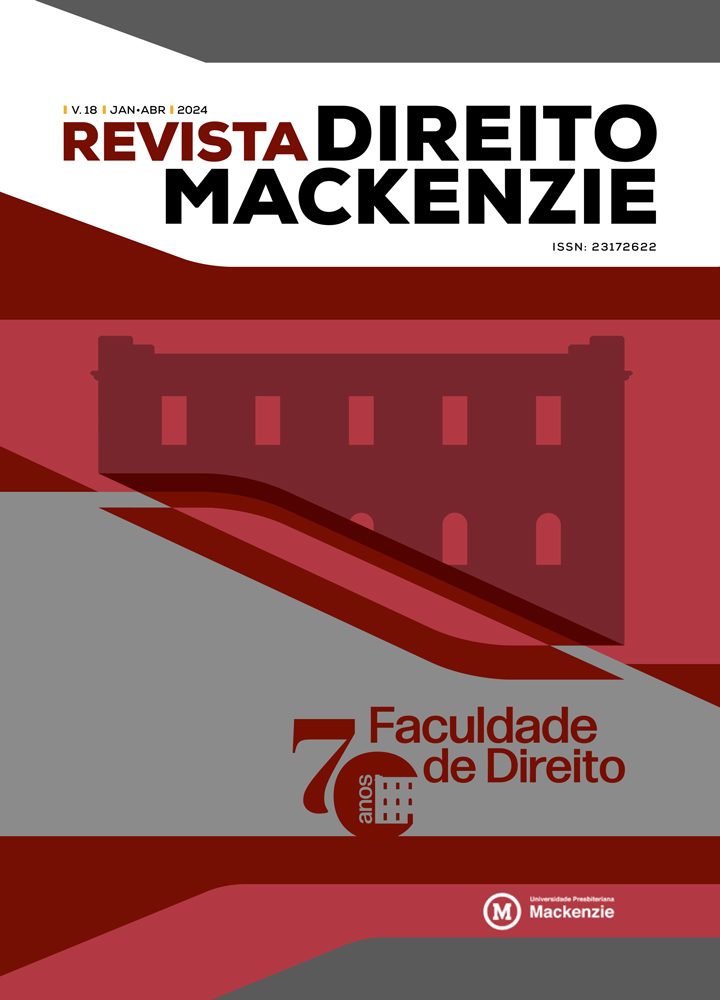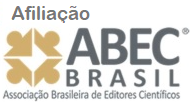A INTELIGÊNCIA ARTIFICIAL COMO INSTRUMENTO DE APOIO À RACIONALIDADE NO PROCESSO LEGISLATIVO
Resumo
O artigo busca aplicar a IA à racionalidade do processo legislativo: evitando
contradições e reforçando a coerência e a eficiência da legislação em
ambiente de superprodução legislativa. As racionalidades do processo legislativo
são apontadas e explicadas, correlacionando-as com os meios de utilização da
IA, para que o processo legislativo obedeça à certeza do direito e à segurança
jurídica exigida pelo Estado de Direito.
Referências
ALEXY, Robert, 2011. Teoria da argumentação jurídica. . 3. Rio de Janeiro: Forense.
ATIENZA, Manuel, 1987. Por una razonable definición de “razonable.” Doxa. 1987. P. 189–200.
ATIENZA, Manuel, 2013. Curso de argumentación jurídica. . Madrid: Trotta.
AVILA, Humberto, 2011. Segurança Jurídica. . São Paulo: Malheiros.
BONAT, Debora and HARTMANN PEIXOTO, Fabiano, 2020. Inteligência Artificial e Precedentes. . Curitiba: Alteridade. Coleção Direito, Racionalidade e Inteligência Artificial.
Câmara lança Ulysses, robô digital que articula dados legislativos - Notícias, 2018. Portal da Câmara dos Deputados. Online. [Accessed 26 July 2022]. Available from: https://www.camara.leg.br/noticias/548730-camara-lanca-ulysses-robo-digital-que-articula-dados-legislativos/
A Câmara dos Deputados lançou nesta quarta-feira (28) uma nova ferramenta em seu portal, para facilitar a transparência e a interação da instituição com a sociedade: o robô digital Ulysses. Ele conjuga vários algoritmos de inteligência artificial, o que permitirá a articulação automática de diversos dados legislativos disponíveis no portal da Câmara e em vários sistemas da Casa.
COPELAND, Michael, 2016. The Difference Between AI, Machine Learning, and Deep Learning? NVIDIA Blog. Online. 29 July 2016. [Accessed 26 July 2022]. Available from: https://blogs.nvidia.com/blog/2016/07/29/whats-difference-artificial-intelligence-machine-learning-deep-learning-ai/
AI, machine learning, and deep learning are terms that are often used interchangeably. But they are not the same things.
FENOLL, Jordi Nieva, 2018. Inteligencia artificial y processo judicial. . Madrid: Marcial Pons.
FISCHER, Ernst, 1979. A necessidade da arte. . Rio de Janeiro: Zahar.
GUTIERREZ, Andriei, 2019. É possível confiar em um sistema de inteligência artificial?: práticas em torno da melhoria da sua confiança, segurança e evidências de accountability. In: Inteligência artificial e direito: ética, regulação e responsabilidade. São Paulo: Revista dos Tribunais.
LEAL, Victor Coutinho, 2017. O conceito constitucional de faturamento para efeitos da incidência da contribuição social ao PIS e Confins. . Master’s in Law. São Paulo: Pontifícia Universidade Católica de São Paulo (PUC-SP).
MACCORMICK, Neil, 2008. Retórica e o Estado de Direito. . Rio de Janeiro: Elsevier.
MCCARTHY, John, 2007. What is Artificial Intelligence? Computer Science Department Stanford University Stanford. John McCarthy’s Home Page. Online. 12 November 2007. [Accessed 27 July 2022]. Available from: http://www-formal.stanford.edu/jmc/
MORAIS DA ROSA, Alexandre, 2019. A questão digital. Revista de Direito da Faculdade Guanambi. 26 September 2019. Vol. 6, no. 02, p. e259–e259. DOI 10.29293/rdfg.v6i02.259.
MORAIS DA ROSA, Alexandre, 2020. Inteligência artificial e Direito: ensinando um robô a julgar. ConJur. Online. 2020. [Accessed 26 July 2022]. Available from: https://www.conjur.com.br/2020-set-04/limite-penal-inteligencia-artificial-direito-ensinando-robo-julgar
MORRIS, Charles W. and RUDOLF, Carnap, 1955. International Encyclopedia of Unified Science. . Chicago: Chicago Univerity Press.
OECD, 2020. Recommendation of the Council on Artificial Intelligence. Online. 2020. [Accessed 26 July 2022]. Available from: https://www.fsmb.org/siteassets/artificial-intelligence/pdfs/oecd-recommendation-on-ai-en.pdf
PERELMAN, Chaim, 2000. O razoável e o desarrazoado em direito. . São Paulo: Martins Fontes.
RADBRUCH, Gustav, 1946. Suddeutsche Juristenzeitung. .
SAERLE, John, 1997. A redescoberta da mente. . São Paulo: Martins Fontes.
SAERLE, John, 1998. O mistério da consciência. . São Paulo: Paz e Terra.
SAS: Analytics, Artificial Intelligence and Data Management, [no date]. Online. [Accessed 27 July 2022]. Available from: https://www.sas.com/pt_br/202206/home.html
SAS is the leader in analytics. Through innovative Analytics, Artificial Intelligence and Data Management software and services, SAS helps turn your data into better decisions.
WALDRON, Jeremy, 1999. Law and desagreement. . Oxford: Oxford University Press.
Downloads
Publicado
Edição
Seção
Licença
Copyright (c) 2024 Liton Lanes Pilau Sobrinho, José Luis Leal Espinoza, Luís Clóvis Machado da Rocha Junior

Este trabalho está licenciado sob uma licença Creative Commons Attribution 4.0 International License.
Os direitos autorais dos artigos publicados na Revista Direito Mackenzie pertencem aos autores, que concedem à Universidade Presbiteriana Mackenzie os direitos de publicação do conteúdo, sendo que a cessão passa a valer a partir da submissão do artigo, ou trabalho em forma similar, ao sistema eletrônico de publicações institucionais. A revista se reserva o direito de efetuar, nos originais, alterações de ordem normativa, ortográfica e gramatical, com vistas a manter o padrão culto da língua, respeitando, porém, o estilo dos autores. O conteúdo relatado e as opiniões emitidas pelos autores dos artigos são de sua exclusiva responsabilidade.











